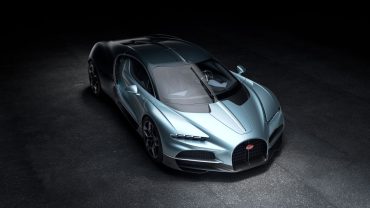
- Mobility Tech
Volkswagen Group Overtakes Tesla as Europe's Top EV Maker
6 minute read

European electric vehicle sales surge 34% as Volkswagen doubles deliveries and Chinese brands gain market share
Key Takeaways
- European EV sales surge 34% year-over-year with 305,000 plugin vehicles registered in May 2025, marking the fastest growth since August 2023 despite overall market stagnation.
- Volkswagen Group overtakes Tesla as Europe’s EV leader after doubling battery-electric deliveries by 113% in Q1 2025, while Tesla’s European sales declined 31% in May.
- Chinese brands capture 5.9% European market share with 65,808 vehicles sold, more than doubling from 2.9% a year ago as competition intensifies across the region.
Introduction
Europe’s electric vehicle market experiences its strongest growth in nearly a year, with plugin vehicle registrations jumping 34% year-over-year in May 2025. This acceleration marks a significant recovery for the region’s EV sector, driven by expanded model offerings and intensified competition between established European manufacturers and emerging Chinese brands.
The surge reshapes the competitive landscape as Volkswagen Group with brands like Volkswagen, Audi, Bentley, Lamborghini and Bugatti secures its position as Europe’s leading EV manufacturer, capturing approximately 26% of the battery-electric vehicle market. Meanwhile, Tesla faces mounting challenges with a 31% decline in May sales, highlighting the shifting dynamics in Europe’s electrification race.
Key Developments
Battery-electric vehicle sales increased by 25% in Europe during May, with registrations reaching 701,089 units in the first five months of 2025. This growth represents a 15.4% market share for BEVs, supported by strong performances in Germany (+43.2%), Belgium (+26.7%), and the Netherlands (+6.7%).
Plug-in hybrid electric vehicles demonstrated even stronger momentum, surging 48% year-over-year in May to surpass 100,000 units. This represents the highest growth rate for PHEVs in over three years, with the BYD Seal U PHEV leading sales alongside models from Volkswagen and Toyota.
The Volkswagen Group achieved remarkable expansion by doubling its all-electric deliveries in Europe, with BEV sales increasing 113% year-over-year in Q1 2025. This growth stems from strategic investments in new models including the VW ID.7 Tourer, Audi Q6 e-tron, Škoda Elroq, and CUPRA Terramar across multiple market segments.
Market Impact
Plugin vehicles now command a 28% share of the European auto market, with battery-electric vehicles holding 18% and plug-in hybrids capturing 17%. This electrification trend coincides with declining traditional fuel vehicle sales, as diesel registrations plummeted 28% to an 8% market share and petrol sales dropped 20% to 28%.
Tesla’s European market position weakened significantly, with the company recording a 30% drop in registrations during March 2025. This decline represents the most significant decrease among the 30 most registered brands, as Tesla lost its BEV sales crown to Volkswagen in Q1 2025.
Chinese manufacturers demonstrate accelerating market penetration, with SAIC Motor achieving a 49.1% sales increase between January and May 2025. The company’s 88,475 vehicles sold in the EU surpassed Tesla’s 50,413 registrations during the same period, highlighting the growing influence of Chinese brands in European markets.
Strategic Insights
The competitive dynamics reveal a fundamental shift in European EV leadership, with traditional European manufacturers leveraging their multi-brand portfolios to capture diverse market segments. Volkswagen’s success demonstrates the effectiveness of platform sharing across brands like Audi, Škoda, and CUPRA to maximize market coverage.
Chinese manufacturers pursue aggressive pricing strategies to establish market presence, with brands like BYD achieving record sales through competitive PHEV and BEV offerings. The BYD Seal U’s 7,135 unit sales in May exemplify how Chinese companies use price advantages to gain European market share.
The surge in plug-in hybrid sales indicates consumer preference for flexibility amid concerns about charging infrastructure and battery-electric vehicle pricing. PHEVs with extended electric ranges up to 143 kilometers provide a practical transition solution for European buyers navigating the electrification shift.
Expert Opinions and Data
Felipe Munoz, Global Analyst at JATO Dynamics, emphasized the significance of recent market developments: “March was a momentous month for BEV registrations in Europe, indicating that the positive response we are seeing to the continually broadening offer is finally having a real impact on the overall market.”
According to Volkswagen Group, this acceleration in 2025 denotes a recovery for Europe’s EV market despite Tesla’s challenges. The data reveals that Volkswagen delivered 216,800 all-electric vehicles globally in Q1 2025, representing a 59% year-over-year increase with over 150,000 units sold in Europe.
Industry observers view Volkswagen’s performance as validation of its electrification strategy after years of trailing Tesla. The company’s ability to double EV deliveries while expanding market share demonstrates the effectiveness of leveraging multiple brands and models to capture segments that Tesla’s narrower lineup does not serve.
Munoz added regarding Tesla’s challenges: “As the brand continues to deal with a host of PR issues in addition to the changeover of the Model Y, Tesla is now relying on the Model 3 to offset the losses.”
Conclusion
Europe’s electric vehicle market demonstrates robust recovery with 34% year-over-year growth in May 2025, driven by expanded model offerings and intensified competition. Volkswagen’s emergence as the regional EV leader, coupled with growing Chinese manufacturer presence, fundamentally reshapes the competitive landscape.
The surge in both battery-electric and plug-in hybrid sales indicates sustained momentum toward electrification, even as traditional fuel vehicle sales decline sharply. This trend positions Europe for continued EV market expansion, with multiple manufacturers competing across diverse price points and vehicle segments to capture growing consumer demand.








